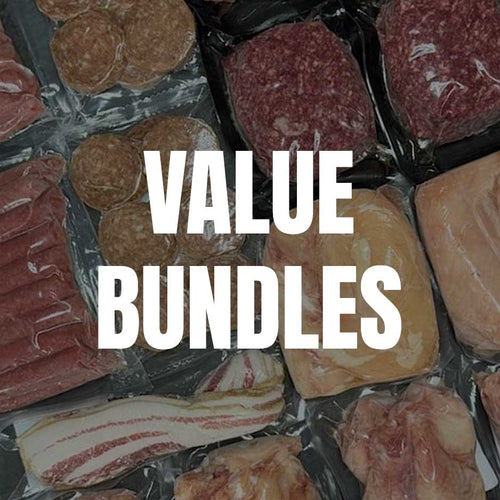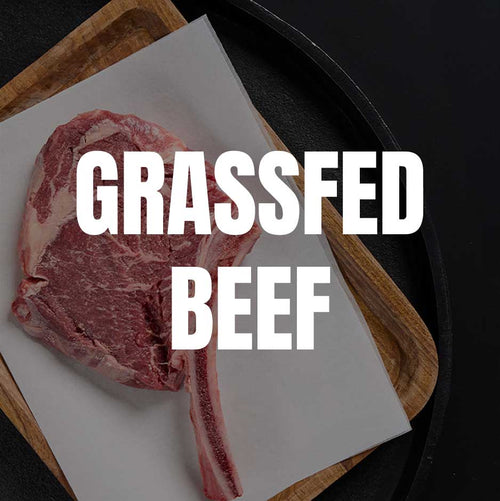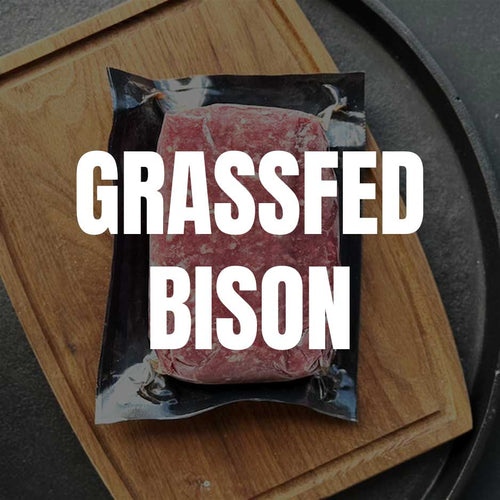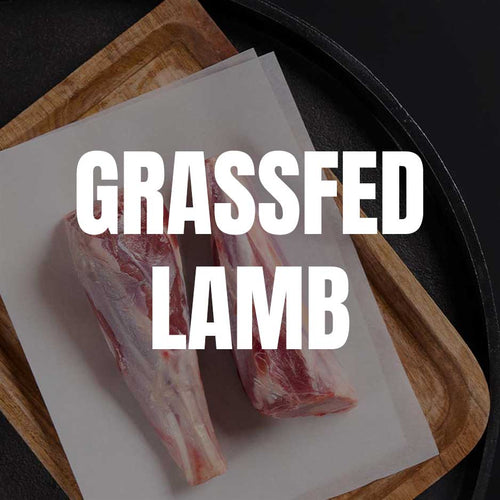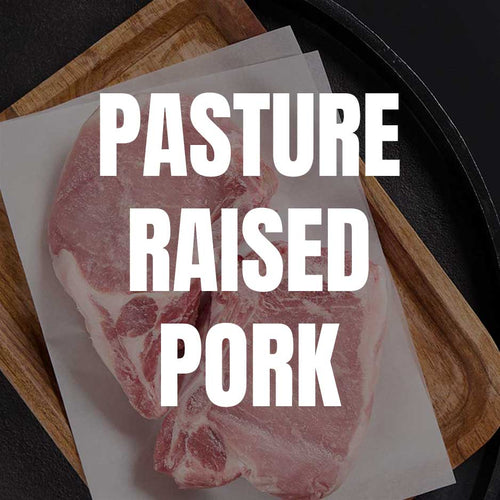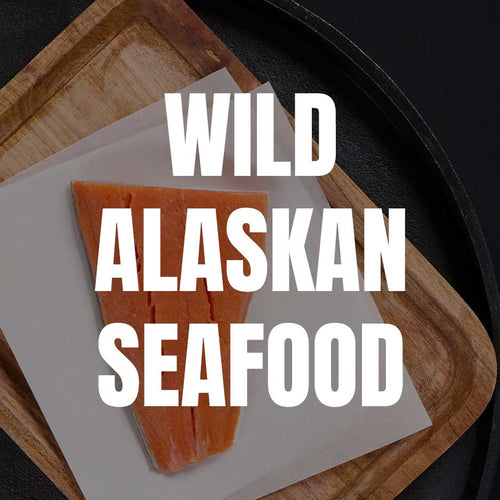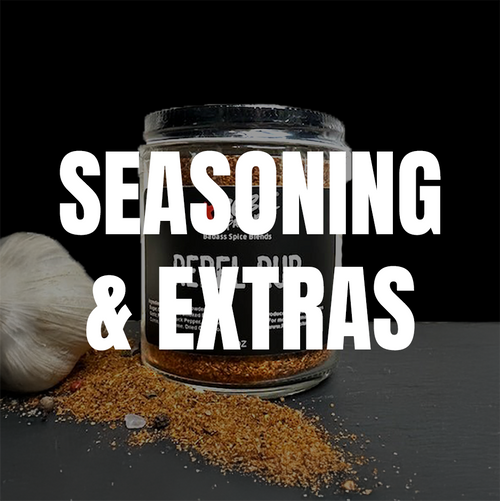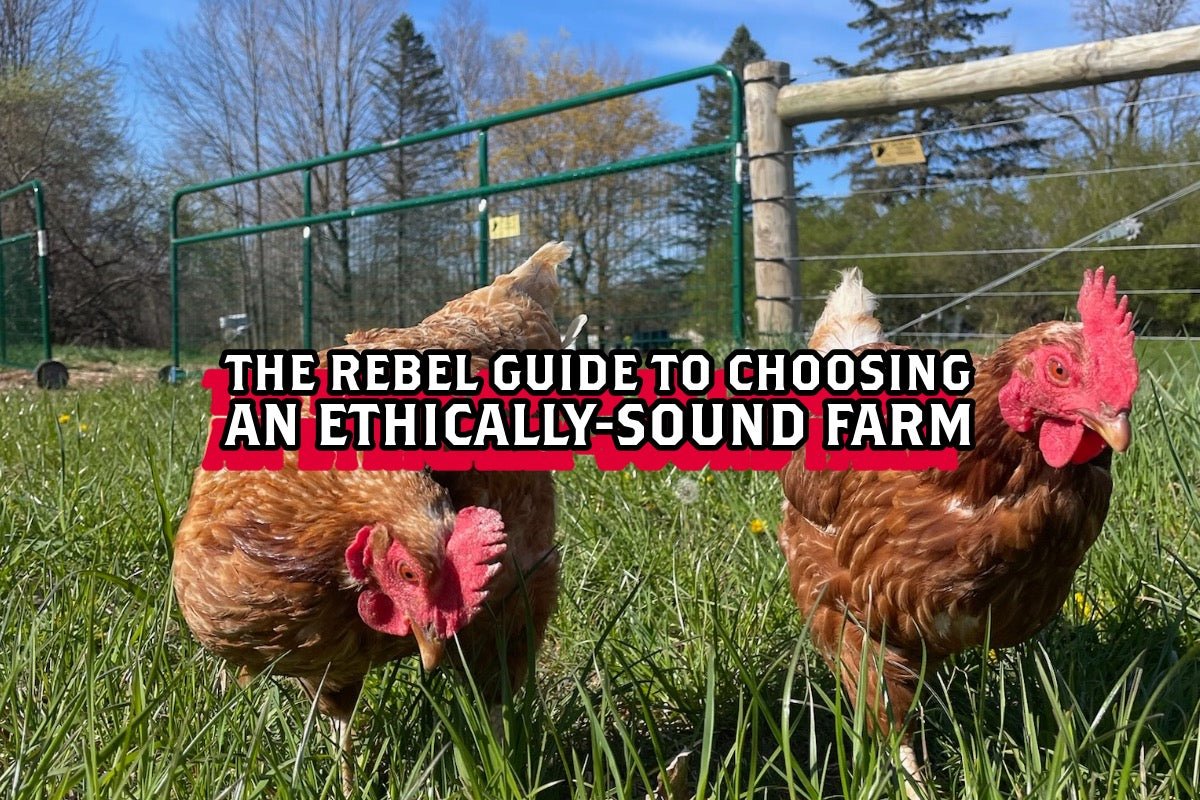
· By Jenni Bajema
The Rebel Guide to Choosing an Ethically-Sound Farm
Times Have Changed
We received quite a few surprised responses to the email last blog (Read it here). And I get it. You assumed you could trust a label that you thought was legit. It’s a disheartening and a bit scary to go down this rabbit hole.
But if you have already decided, like we have, to refuse to accept being lied to, keep reading...
We used to live in a world where being a farmer spoke for itself. He or she didn’t need to prove their practices because words retained their meaning and customers (friends and neighbors) could witness it themselves.
We don’t live in that world anymore. We buy products from farms that come from all over the world that we will never meet. Our governing bodies, in what I believe began as an effort to protect us, have created a system of checks and balances to oversee the farms. But it’s failed miserably and separated the consumer from how their food is grown and raised. Words have been hijacked, loopholes are manipulated, and political lobbying has created an uneven playing field.
A Guide to Choosing an Ethically-Sound Farm
As a direct to consumer farm, it’s more important than ever that we are:
1.) Transparent
2.) Constantly seeking to grow our knowledge
3.) Challenging the status quo for ethical integrity and environmental stewardship.
We’re here to guide you through the facade of greenwashing to find farms that are true to their word.
-
Labels are Something, But They're Not Everything
While labels can be a place to start, we’ve learned that they’re not the be-all and end-all. Many of the most ethically sound farms choose not to pursue certification due to the cost or bureaucratic hurdles. And many farms that do jump through the hoops for certification use them to cover their unethical practices. Use websites like eatwild.com or getrealchicken.com to start searching for farms that care.
-
Seek Transparency
Genuine sustainable, regenerative farms operate on the principle of transparency because they are proud of what they do. Look for farms that offer detailed information about their farming methods, animal welfare standards, and environmental policies. Better yet, farms that invite public visits or offer tours demonstrate confidence in their practices and provide an invaluable opportunity for consumers to see the truth with their own eyes.
-
Ask the Right Questions
When in doubt, ask. Reach out to farms directly and inquire about their practices. Some pertinent questions might include: How do you raise your animals? What do you feed your animals? Do you give your animals mRNA vaccines? How often do you give your animals antibiotics? A farm with nothing to hide will welcome your curiosity.
-
Community and Reviews
In the age of information, use your network and online communities to gather insights about farms. Social media, forums, and reviews can offer unfiltered opinions and experiences from other consumers. A pattern of positive or negative feedback can be telling.
-
Trust Your Instincts
Lastly, trust your gut. If something feels off about a farm's claims or if information is too hard to come by, it might be a red flag. Ethical and sustainable farming practices are rooted in respect—for the earth, for animals, and for people. Any farm truly committed to these principles will exude authenticity.
Greenwashing is an invasive weed that thrives in the shadows of ambiguity. However, with a discerning eye, a curious mind, and a rebellious spirit, you can navigate through the green facade to support farms that are genuinely making a difference.
Every dollar you spend is a vote for the kind of world you want to live in.
Choose wisely.
Choose ethically.



